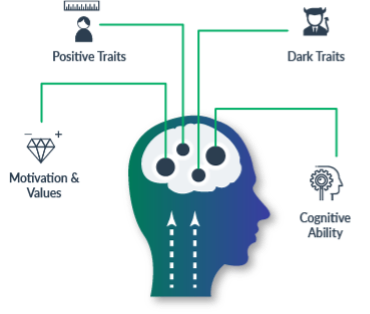
HR Executives handle a lot of responsibilities, but the Resume Streamlining process is the most crucial part of the hiring process handled by an HR Executive. While Originations take enough precautions to ensure the right resumes get selected, they need to be extra careful so that the best candidate for the job does not get filtered out in the initial screening itself and the suitable candidates with an attitude for the jobs get selected.
Selecting the wrong candidates is one of the primary reasons for a high attrition rate. Companies spend weeks or even months looking for the right candidate, setting up rounds of interviews, and sometimes even flying or boarding a group of candidates before making a hire. This whole process takes the attention of half a dozen people, and hundreds of hours are spent (application sorting, scheduling, interviewing, doing reference checks, etc.). Then a few months or maybe years into the job, the company realizes that this person isn’t the fit they were hoping for, and they’re back to square one. While it’s frustrating to have to re-hire for a position, what’s even worse is the money that this (mis)-hire cost the company.
With a sizable workforce, and 50X or 100X candidates applying for a job, it is not an easy task to match the skillsets and the right candidate. Given the number of candidates that apply for an open position, it is not surprising that recruiters often find it challenging to make a choice. Many recruiters complain because they fail to find the perfect candidates after a long, tumultuous process. The wrong candidates are often selected, which makes the whole hiring process counterproductive. This can be mitigated if the screening process can be made robust enough to filter out the wrong candidates from the fray.
How does Current Resume Screening Process work?
Let’s have an insight into how the current Resume Screening Process works and what the issues HR Executive are facing these days:
- Volume of Resumes
- Quality of Hire
- Filtering Out on Aesthetics
- False Information on Resume
- Overcoming Hiring Biases
- Recruiter’s Experience
- Hiring Criteria
Resumes are enormous in the job application process. While companies can take enough precautions to ensure the right resumes get selected, it is never really enough while recruiting. They need to be extra careful so that the best candidate for the job does not get filtered out in the initial screening. You will have a tough time if you don’t understand the key points that will help you screen them.
The old-fashioned way of any organization’s Screening Process was to Manually screen every resume leaving a large pool of candidates to call for the next step and so on, delaying the entire process altogether! SOUNDS TEDIOUS, RIGHT? And then, too, we are yet to factor in the primary HUMAN BEHAVIORAL EFFECTS ON THE TASK AT HAND. See! It’s only natural for us to want the Recruiter to be in a great mood before appearing in front of them for the Interview.
Well! It’s not all bad! Many organizations have made improvements by taking many Applicants’ Friendly Initiatives to streamline the process, such as Social Media Screening, AI-Powered Screenings, Online Assessments, etc.
But we think candidates would feel much more at ease and share a fair sense of judgment with the Recruiting team if the below Screening Process is implemented:
What is the Psychometric Assessment Test
A psychometric test or psychometric assessment evaluates an individual’s cognitive skills and personality traits. It helps assess whether the individual can thrive in a specific professional role. Psychometric testing can help understand aspects of mental ability and behavioral style that organizations cannot gauge during conversations and interviews. A psychometric test is a standard and scientific method that plays an equally significant role in educational or clinical settings. It also offers an unbiased evaluation of a broad range of parameters, such as logical reasoning, industry-specific aptitude, role-specific qualities, type of personality, and more. Even though the origin of psychometric testing dates back to ancient times, statistician and psychologist Francis Galton developed the modern-day psychometric test. Also known as the ‘Father of Psychometrics,’ Galton was the first to coin the term “psychometric.” He designed a framework to assess people’s intelligence based on their motor and sensory skills. James McKeen Cattell, who named psychometric assessments as ‘mental tests,’ extended Galton’s work. Modern-day psychometric assessments found their roots in 19th-century France when physicians used them to identify patients with mental illness.
Why are Psychometric Tests used in Recruitment?
Organizations prefer using psychometric tests in recruitment because there is a strong correlation between psychometric test scores and job performance. For example, high scores could be an excellent indication of high performance on the job. Besides, online psychometric tests are easy to administer and scale to match the hiring requirements. Psychometric tests are an objective way of assessing the potential ability of candidates for various job roles. With these tests comes the convenience of evaluating various skills, ranging from levels of knowledge, aptitude, and cognitive skills to behavioral qualities and people skills. The predictive qualities of a psychometric assessment serve as an essential foundation for streamlining the hiring process.
Advantages of Psychometric Test:
- Objectivity: The traditional approach to hiring is instinctive and heavily dependent on interviews and elaborate CV descriptions. Psychometric tests eliminate this element of subjectivity in the decision-making approach and provide fair, bias-free talent assessment.
- Accuracy: Psychometric evaluation enables hiring managers to measure an individual’s abilities to process information, solve problems, and make decisions while assessing their behavioral attributes. Such an evaluation reveals essential data recruiters utilize to make rational decisions about candidates.

- Speed: Humanly sifting through all job applications can be a time-taking process. Psychometric assessment enables companies to focus on suitable candidates by narrowing the search.
- Validity: The validity of psychometric tests depends on the degree to which they measure what they claim to measure. Since these tests use valid methodologies to measure personality traits and aptitude, they promise a greater validity than conventional interviews.
- Reliability: A psychometric test can only be reliable if it produces similar results under invariable conditions. A reliable test score is precise and consistent during all the tests. It can also be recreated on multiple occasions. Therefore, choosing a psychometric test that follows a trait-based approach is essential.
Psychometric Profiling Assessment
Psychometric profiling assessments are psychological tools employers use to ascertain candidates’ suitability for various roles. These tests vary in subject matter and content to evaluate some of the most sought-after skill sets. Some prominent psychometric testing tools nowadays in recruitment are numerical, verbal, and logical reasoning tests. In addition to the advantages enlisted in the earlier sections, there are two main reasons why employers use psychometric assessment tests:
- Psychometric assessment is considered helpful in improving and minimizing HR and hiring costs.
- A psychometric exam ensures a streamlined candidate selection process, reducing attrition.
Sales Psychometric Test for Recruitment of Freshers in Sales
Psychometric tests are all the more critical when hiring freshers for sales jobs. A Sales Psychrometric test helps to identify freshers with an aptitude for sales who can be easily trained to start performing. Screening with a Sales Psychrometric test and recruiting also helps reduce the attrition rate, as candidates do not leave because they do not have an aptitude for sales.




